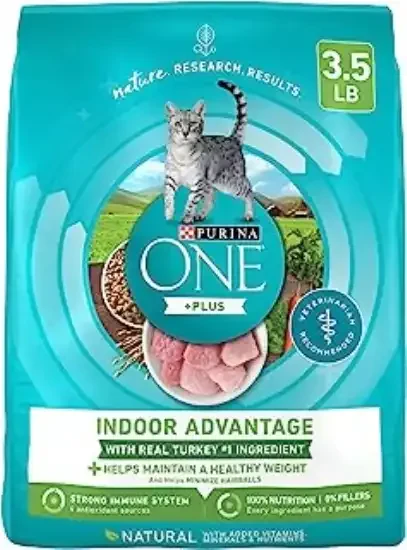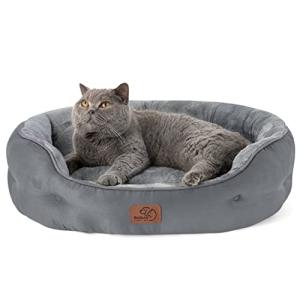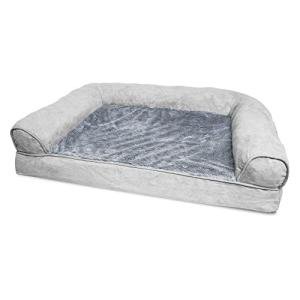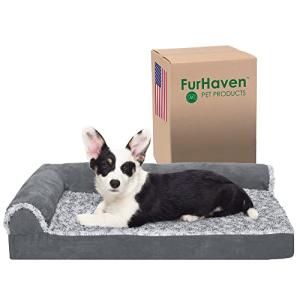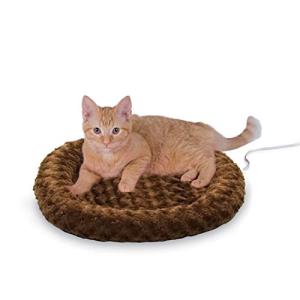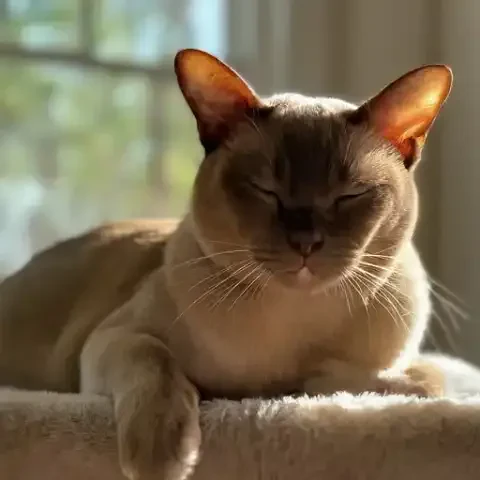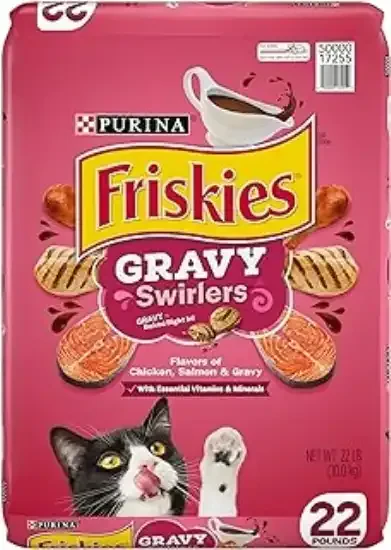You’re standing in the pet food aisle, surrounded by a dizzying array of choices, each promising optimal health and vitality for your beloved feline companion. Your eyes scan the labels, diligently seeking the best ingredients, when suddenly, a word jumps out at you: “Sodium.” A flicker of concern arises. Is sodium something you should be actively avoiding in your cat’s diet? Is it a hidden ingredient to be wary of, a potential culprit lurking in their food bowl? The question of sodium in cat food is a common one for conscientious pet owners, and like many aspects of feline nutrition, the answer is more nuanced than a simple yes or no. Sodium is not inherently a villain in the world of feline diets, but understanding its role, its potential risks, and how to interpret cat food labels is crucial for making informed choices that support your cat's long-term health and well-being. This article aims to unravel the complexities surrounding sodium in cat food, to separate fact from fiction, and to empower you with the knowledge you need to confidently navigate your cat’s nutritional needs. We will explore the essential functions of sodium in your cat’s body, delve into the potential dangers of excessive sodium intake, guide you on how to decipher cat food labels to assess sodium content, identify specific situations where sodium levels warrant closer attention, and ultimately, provide practical tips to help you make the best dietary choices for your feline friend, ensuring their bowl is filled with nourishment, not cause for worry.
To understand whether sodium should be a cause for concern, it’s essential to first recognize its fundamental role in your cat’s physiology. Sodium is not just another mineral listed on the ingredient panel; it's a vital electrolyte, playing a critical part in maintaining a multitude of bodily functions that are essential for life itself. As an electrolyte, sodium is charged with conducting electricity when dissolved in bodily fluids, enabling a range of crucial processes. One of its primary functions is regulating fluid balance within the body. Sodium helps control the movement of water between cells and the bloodstream, ensuring proper hydration and preventing both dehydration and overhydration. This delicate balance is crucial for overall health, impacting everything from kidney function to cellular processes. Sodium is also indispensable for nerve and muscle function. It plays a key role in nerve signal transmission, allowing the brain to communicate effectively with the rest of the body. Furthermore, sodium is vital for muscle contractions, including the rhythmic beating of the heart. Without sufficient sodium, nerve and muscle function would be severely compromised. Beyond fluid balance and nerve-muscle function, sodium contributes to nutrient absorption in the intestines, facilitating the uptake of certain essential nutrients from the digestive tract into the bloodstream, ensuring your cat efficiently utilizes the nourishment from their food. Finally, sodium participates in maintaining the acid-base balance within the body, helping to regulate the pH levels of blood and other bodily fluids, ensuring a stable internal environment for optimal cellular function. Cats, being obligate carnivores, have evolved to derive their nutritional needs primarily from animal-based sources. In their natural environment, cats would obtain sodium primarily from consuming prey animals, as meat is a natural source of this essential mineral. Therefore, sodium is not an artificial additive in cat food; it is a naturally occurring component of a feline’s ancestral diet and remains a necessary nutrient for their health today. It is crucial to dispel the common misconception that sodium is inherently “bad” in cat food. Sodium, in appropriate amounts, is not only beneficial but absolutely essential for a cat’s survival. It is not an ingredient to be feared or avoided, but rather understood and respected as a vital nutrient that contributes to their overall well-being. The concern arises not from the presence of sodium itself, but rather from the potential for excessive sodium intake, which, like any nutrient imbalance, can lead to health problems.
While sodium is essential, like many nutrients, too much of a good thing can become detrimental. The potential risks associated with sodium in cat food primarily arise when intake becomes excessive, particularly over extended periods. In the short term, a sudden and extreme spike in sodium intake can lead to a condition called hypernatremia, characterized by abnormally high sodium levels in the blood. Acute symptoms of sodium toxicity or hypernatremia can include excessive thirst and urination as the body attempts to flush out excess sodium, vomiting and diarrhea, lethargy, and in severe cases, neurological signs such as confusion, muscle tremors, or even seizures. However, it’s important to note that sudden and severe hypernatremia due to commercially formulated cat food is relatively rare. Acute sodium toxicity is more likely to occur from accidental ingestion of highly salty substances, such as playdough, salt lamps, or large amounts of table salt, or in situations where a cat experiences severe dehydration and loses excessive fluids without adequate electrolyte replacement. The more relevant concern for most cat owners revolves around the potential long-term health consequences of chronic, moderately elevated sodium intake from their cat’s diet. Over time, consistently consuming food with excessively high sodium levels can place undue stress on several organ systems. One of the primary concerns is the potential impact on kidney health. The kidneys play a crucial role in regulating sodium levels in the body. Chronic high sodium intake can increase the workload on the kidneys as they work harder to filter and excrete excess sodium, potentially exacerbating pre-existing kidney disease or contributing to the development of kidney problems over time, particularly in senior cats or those with underlying kidney vulnerabilities. Another potential long-term consequence is the development of high blood pressure, or hypertension. Sodium plays a significant role in fluid balance and blood pressure regulation, and chronic excessive intake can contribute to the development of hypertension in cats, similar to its effects in humans. Hypertension, in turn, can strain the cardiovascular system and potentially lead to heart disease or other complications. While heart disease itself isn't directly caused by high sodium alone, the increased blood pressure associated with excess sodium can put added stress on the heart over time. It's crucial to emphasize that these are potential risks associated with long-term, excessive sodium intake, not necessarily with the typical sodium levels found in balanced commercial cat food. The key is to ensure that sodium intake remains within a healthy range, not to eliminate it entirely from your cat's diet.
It's also important to recognize that individual cats can have varying sensitivities to sodium intake and predispositions to sodium-related health concerns. Certain cats are inherently more vulnerable to the potential negative effects of higher sodium levels due to pre-existing conditions or their life stage. Cats with diagnosed chronic kidney disease (CKD) are a primary group where lower sodium diets are often recommended by veterinarians. Their kidneys are already compromised and less efficient at regulating fluid and electrolyte balance, making them more susceptible to the increased workload imposed by higher sodium intake. Lower sodium diets can help reduce the strain on their kidneys and potentially slow the progression of kidney disease. Similarly, cats with diagnosed heart conditions, particularly those prone to hypertension, may require closer management of their sodium intake. High sodium can exacerbate hypertension and place further stress on an already vulnerable cardiovascular system. Veterinary guidance is essential for dietary management in these cases, and sodium-restricted diets may be recommended. Senior cats, even those without diagnosed kidney disease, are another group where sodium intake warrants consideration. Kidney function naturally tends to decline with age in cats, making senior felines potentially more susceptible to the long-term effects of higher sodium intake. While moderately restricted sodium levels are generally acceptable for healthy senior cats, it’s always wise to discuss your senior cat’s specific dietary needs with your veterinarian, especially if you notice any signs of potential kidney issues, such as increased thirst or urination. While excessively low sodium is generally not recommended for healthy cats, moderate sodium restriction may be proactively beneficial for some senior cats, but it is not a blanket recommendation for all and should be guided by veterinary advice. Determining what constitutes “too much” sodium is key to understanding how to assess your cat’s diet. There are general recommended ranges for sodium in cat food, often expressed on a dry matter basis (DMB) to account for varying moisture content in different food types. These guidelines, often established by organizations like AAFCO (the Association of American Feed Control Officials), provide approximate percentage ranges for sodium levels considered to be nutritionally adequate and safe for adult maintenance and growth. Optimal sodium levels can vary slightly depending on a cat's age, overall health status, and specific dietary needs. The key takeaway is that moderation and balance are paramount. The goal is not to eliminate sodium from your cat’s diet but to ensure that their intake remains within a healthy and appropriate range to support their essential bodily functions without posing long-term health risks.
Navigating the sodium content of cat food requires understanding how to decipher the information provided on pet food labels. The primary place to look for sodium content is in the “Guaranteed Analysis” section, which is a mandatory component of all pet food labels. This section provides a breakdown of the key nutrients in the food. Within the Guaranteed Analysis, you will typically find “Sodium (Min)” or, less commonly, “Sodium (Max)” listed, often expressed as a percentage of the food on an “as fed” basis. Understanding the terms "Minimum" and "Maximum" is crucial for correctly interpreting the sodium information. When you see “Sodium (Min),” it indicates the minimum amount of sodium present in the food. This means that the food contains at least the listed percentage of sodium, but the actual amount could be higher. This is often the format used for sodium on cat food labels. Conversely, “Sodium (Max)” would indicate the maximum amount of sodium present, meaning the food contains no more than the listed percentage. This “Maximum” designation is less common for sodium and more often used for nutrients like fiber or moisture. For sodium, the more common “Minimum” listing can make it slightly more challenging to determine the precise sodium content of the food from the label alone, as you only know the lowest possible amount, not the exact or average level. To accurately compare sodium levels across different cat foods, especially when comparing dry food to wet food, it is ideal to convert the “as fed” percentages to a Dry Matter Basis (DMB). The Dry Matter Basis removes the variable of moisture content, allowing for a more accurate comparison of nutrient concentrations. The DMB calculation involves removing the water weight from the food to determine the concentration of nutrients in the dry matter portion. While the full calculation can be slightly complex, involving considering the moisture percentage of the food, many online “Dry Matter Basis calculators” are readily available for pet owners. These calculators simplify the process, allowing you to input the “as fed” percentage of sodium and the moisture content of the food to calculate the sodium percentage on a dry matter basis, enabling a more accurate “apples to apples” comparison between different food types.
It’s also worth noting that different types of cat food can naturally vary in their sodium content. Wet food, due to its high moisture content, generally tends to have lower sodium levels when expressed on an “as fed” basis compared to dry food. However, when you compare sodium levels on a Dry Matter Basis, this difference often becomes less pronounced. Ultimately, ingredient choices and the specific formulation of the cat food recipe play a far more significant role in determining sodium content than just the food type (dry vs. wet) itself. Some dry foods may be formulated with lower sodium than some wet foods, and vice versa, depending on the brand and recipe. Therefore, relying solely on food type as an indicator of sodium content can be misleading. Instead, focus on carefully examining the Guaranteed Analysis on the label and, ideally, utilizing Dry Matter Basis calculations for a more accurate understanding of the actual sodium levels in different cat food options. While understanding sodium content on labels is helpful, it's crucial to recognize that label information provides only a partial picture. The best approach to making informed dietary choices regarding sodium involves considering your cat's individual health needs and consulting with your veterinarian. While routine monitoring of sodium levels may not be necessary for all healthy adult cats, there are specific situations and categories of cats where closer attention to sodium intake becomes particularly important and beneficial for their health.
Cats with pre-existing kidney disease (CKD) represent the primary group for whom lower sodium diets are often a key component of veterinary management. For cats diagnosed with CKD, reducing sodium intake is often recommended to help minimize the workload on their already compromised kidneys. Lower sodium diets can help reduce the amount of sodium the kidneys need to filter and excrete, potentially slowing the progression of kidney damage and improving kidney function. Furthermore, lower sodium intake can aid in managing blood pressure and fluid balance issues that are often associated with CKD in cats, helping to alleviate symptoms and improve overall well-being. Prescription kidney diets specifically formulated for cats with CKD are carefully designed to be lower in sodium, as well as other nutrients like phosphorus and protein, to provide targeted nutritional support for kidney health. Cats with diagnosed heart conditions, particularly those suffering from hypertension (high blood pressure), also often benefit from dietary sodium management. Excessive sodium intake can exacerbate hypertension and place additional strain on the cardiovascular system. Veterinarian-recommended diets for cats with heart conditions may be lower in sodium to help manage blood pressure and reduce stress on the heart. Dietary management for cats with heart conditions is complex and should always be guided by a veterinarian who can tailor recommendations to the specific type and severity of the heart condition. Senior cats, even those without diagnosed kidney or heart disease, are another group where considering sodium intake is prudent. As cats age, kidney function naturally tends to decline, even in otherwise healthy seniors. While moderately restricted sodium is not necessarily a blanket recommendation for all senior cats, it is something to discuss with your veterinarian during routine senior wellness checkups. In some cases, proactively transitioning a senior cat to a food with slightly lower sodium levels may be beneficial to ease the workload on their aging kidneys, even if no overt kidney disease is yet present. Your veterinarian can assess your senior cat’s individual health status and kidney function and advise whether a lower sodium diet would be a beneficial preventative measure. Cats who are on certain medications may also require closer monitoring or adjustments to their sodium intake as part of their overall medication management. Some medications, such as corticosteroids, can sometimes affect fluid balance or blood pressure, potentially making cats more sensitive to sodium intake. If your cat is on any long-term medications, discuss potential dietary considerations, including sodium intake, with your veterinarian to ensure their diet complements their medication regimen and supports their overall health. While not directly related to sodium intake, it is worth briefly touching on dehydration risks, though in a nuanced way to avoid confusion. In very specific and medically managed cases of dehydration, extremely low sodium intake could potentially be detrimental. However, this is a highly complex medical situation that is typically only relevant in veterinary hospital settings when managing severe dehydration and electrolyte imbalances. For routine pet owner dietary choices, this is generally not a relevant consideration, and the focus should remain on avoiding excessively high sodium intake, particularly for cats with the pre-existing conditions discussed above.
Making informed dietary choices regarding sodium for your cat ultimately boils down to a combination of proactive communication with your veterinarian, careful label reading, and a commitment to providing a balanced and high-quality diet. The absolute best first step in navigating sodium in your cat’s food is to consult with your veterinarian. Your veterinarian is your most valuable resource for personalized dietary advice. Discuss your cat's individual health status, age, lifestyle, and any pre-existing conditions with your vet and ask them specifically about appropriate sodium levels for your specific cat. They can assess your cat’s overall health, kidney function, heart health, and any other relevant factors and provide tailored recommendations regarding sodium intake and the best type of diet for their needs. Once you have a general understanding of your veterinarian’s recommendations, become a diligent label reader. Carefully examine the Guaranteed Analysis section of cat food labels and locate the listed sodium content. When comparing different food options, focus on comparing sodium levels within the same food type category (dry food to dry food, wet food to wet food) to get a sense of relative sodium content. While Dry Matter Basis calculations can provide a more accurate comparison across food types, even direct label comparison within similar food categories can be helpful in gauging relative sodium levels. Prioritize choosing high-quality cat food brands from reputable manufacturers. Established and reputable cat food brands generally prioritize balanced nutrition and ingredient quality. They are typically formulated to meet AAFCO guidelines and provide appropriate levels of essential nutrients, including sodium, while minimizing the risk of excessive levels. Consider the food type based on your cat’s individual needs and preferences, while keeping sodium in mind if it’s a specific concern. Wet food often naturally contains lower sodium on an “as fed” basis due to its higher moisture content, and may be a preferred option for some cats under veterinary guidance if sodium restriction is a significant factor. However, remember that the overall formulation and ingredient quality are more important than just food type alone, and many high-quality dry food options are also formulated with appropriate sodium levels. Be mindful of extra sources of sodium in your cat’s diet. Avoid giving your cat excessive amounts of salty treats or human food scraps. Many human foods are significantly higher in sodium than cat food and are not appropriate for feline consumption. Excessive treats, even commercially made cat treats, can also contribute to higher overall sodium intake if given in large quantities. Always ensure fresh, clean water is readily available for your cat. Adequate hydration is crucial for kidney health in general and helps the body regulate sodium balance effectively. Encourage your cat to drink plenty of water by providing multiple fresh water sources throughout your home. Finally, be observant and monitor your cat for any signs of potential health issues. While symptoms like increased thirst and urination, lethargy, or changes in appetite are not solely indicative of sodium issues, they are general signs that warrant veterinary attention. If you notice any changes in your cat’s health or behaviour, schedule a veterinary checkup to rule out underlying medical conditions and discuss your cat’s diet and nutritional needs with your veterinarian.
To further empower you to make informed decisions, it’s helpful to debunk some common myths and misconceptions surrounding sodium in cat food. One persistent myth is that “all sodium is bad for cats.” This is simply untrue. As we’ve discussed, sodium is an essential nutrient for cats, playing vital roles in fluid balance, nerve and muscle function, and overall health. It is not inherently harmful when provided in appropriate amounts. The problem lies not with sodium itself, but with excessive sodium intake, just as excessive intake of any nutrient can be detrimental. Another misconception is that “low-sodium food is always healthier for all cats.” While lower sodium diets are therapeutically beneficial for cats with specific conditions like kidney disease or heart disease, they are not universally “healthier” for all cats. For healthy adult cats, moderately restricted sodium diets are generally not necessary and may not provide any additional health benefits. In some situations, excessively low sodium could even be potentially detrimental in the long run, although this is rarely a concern with balanced commercial cat food. It’s also a myth to assume that “if my cat drinks a lot, it must be the sodium in their food.” While high sodium intake can increase thirst as the body attempts to regulate sodium balance, increased thirst is a symptom that can have many underlying causes in cats, including kidney disease, diabetes, hyperthyroidism, and other medical conditions. While sodium intake could be a contributing factor to increased thirst, increased water consumption alone is not definitive proof of excessive sodium intake and warrants a veterinary checkup to rule out other more serious medical issues. Finally, the assumption that “dry food is always higher in sodium than wet food” is another common misconception. While dry food can be higher in sodium on an “as fed” basis due to its lower moisture content, the actual sodium content is determined by the food’s formulation and ingredients, not just its food type. Many dry cat foods are formulated with appropriate sodium levels, and wet food is not automatically always low in sodium. For accurate comparisons, always examine the Guaranteed Analysis and consider Dry Matter Basis if needed, rather than relying on generalizations about food types.
In conclusion, navigating the question of sodium in your cat’s food is about achieving a balanced perspective, not succumbing to unnecessary worry or fear. Sodium is not an enemy lurking in your cat’s bowl; it is an essential nutrient that plays vital roles in maintaining their health. The key is to understand that while sodium is necessary, excessive intake, particularly over the long term, can pose potential health risks, especially for cats with pre-existing conditions or age-related vulnerabilities. By becoming sodium savvy, you can make informed dietary choices for your cat, empowering yourself to select high-quality cat food, interpret labels intelligently, and most importantly, work proactively with your veterinarian to ensure your feline companion receives a balanced and healthy diet tailored to their individual needs. With knowledge and veterinary guidance, you can confidently nourish your cat without unnecessary anxiety about sodium, ensuring their food bowl contributes to a long, healthy, and happy life. Don't hesitate to discuss your cat's diet and any concerns you have about sodium content with your veterinarian at their next checkup. Exploring reputable resources on feline nutrition, such as veterinary websites and guidelines from organizations like AAFCO, can also further enhance your understanding and empower you to make the best possible choices for your beloved feline friend.
